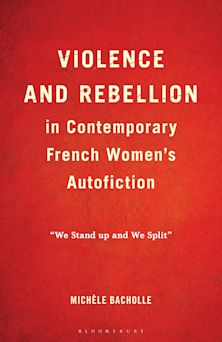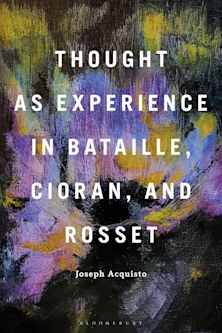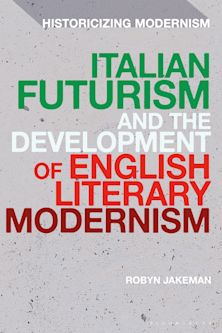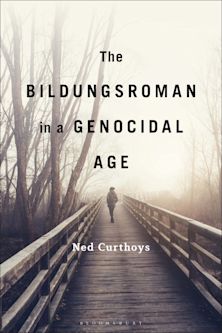- Home
- ACADEMIC
- Literary Studies
- Western European Literature
- State Power, Stigmatization, and Youth Resistance Culture in the French Banlieues
State Power, Stigmatization, and Youth Resistance Culture in the French Banlieues
Uncanny Citizenship
State Power, Stigmatization, and Youth Resistance Culture in the French Banlieues
Uncanny Citizenship
You must sign in to add this item to your wishlist. Please sign in or create an account
Description
State Power, Stigmatization, and Youth Resistance Culture in the French Banlieues: Uncanny Citizenship foregrounds the literary, sociological, and political structures of urban literature in France. It uses postcolonial theory, sociology, and political philosophy to investigate the modalities surrounding the question of citizenship in a country where citizens of African descent are not only considered a threat to national identity, but also caught between inclusion and exclusion. By examining the literary, sociological, and political structures of urban literatures produced after the 2005 riots, this book interrogates the questions of citizenship, belonging, and coexistence in a context where literature from the "periphery" has become a site where "central" political power and "mainstream" French literary canons are contested. Moreover, these productions clearly reveal an unexplored correlation between geo-aesthetics and contemporary French national geopolitics. Ultimately, this book is a plea for a serious approach to social formation in postcolonial France in a way that transcends skin color, and instead is based on a shared colonial past, as well as current social disqualifications.
Table of Contents
Chapter one: Introduction: Writing (from) the Banlieues
Chapter Two: Criminal Identities
Banlieue Parades
Violence, Alterity on the Inside, and Second-Class Citizenship
Chapter Three: Recasting Juvenile Delinquency
Chronicle of Youth in the Galley
From Social Disqualification to Delinquency
Chapter Four: The Islamist Threat
Terrorist in spite of Himself: The Amalgamation of Religion, Ethnicity, and Topography
The Enemy Within: Islam and Integration in France
Chapter Five: The Feminist Metaphor
Oderint Dum Metuant: Feminine Revolt, Urban (Dis) Order, and Rights of Citizenship
Transgressive Women, Gender Democracy, and Rediscovery of the Ordinary in the Banlieues
Conclusion: Urban Riots and Youth Resistance in the Banlieue: Towards a Coming Community
Bibliography
Product details
| Published | Apr 09 2015 |
|---|---|
| Format | Ebook (PDF) |
| Edition | 1st |
| Extent | 1 |
| ISBN | 9798216289166 |
| Imprint | Lexington Books |
| Series | After the Empire: The Francophone World and Postcolonial France |
| Publisher | Bloomsbury Publishing |
About the contributors
Reviews
-
More than ever before, recent terrorist attacks in Paris have brought worldwide attention to violence and the citizenship debate. What are the dynamics that are likely to lead a citizen to violence? How can social frustration and religion express themselves when one does not have the floor to articulate one’s opinion? Uncanny Citizenship provides a key to understanding the genesis of these issues in France in the sense that the author builds his framework on literary, philosophical, sociological, political, and historical theories in order to shed light on these questions. . . .[T]his book is an excellent entrée to the debate about violence, citizenship, identity, and representations of Muslims in France. Indeed, its various contributions improve the academic discourse and open new venues for French banlieues literature as well. I highly recommend Uncanny Citizenship to readers and scholars of different horizons.
African Studies Quarterly
-
This study should be mandatory reading for anyone working on the banlieue.
Lydie Moudileno, professor of French and Francophone studies, University of Pennsylvania
-
Visible versus invisible! State Power, Stigmatization, and Youth Resistance Culture in the French Banlieues is a ruthless study of self and other, focusing on center and margin concerns within France. This painstaking and very politically incorrect book brings to light the issues of African immigrants in France. A brilliantly crafted literary and social sciences work.
Ambroise Kom, College of the Holy Cross



































